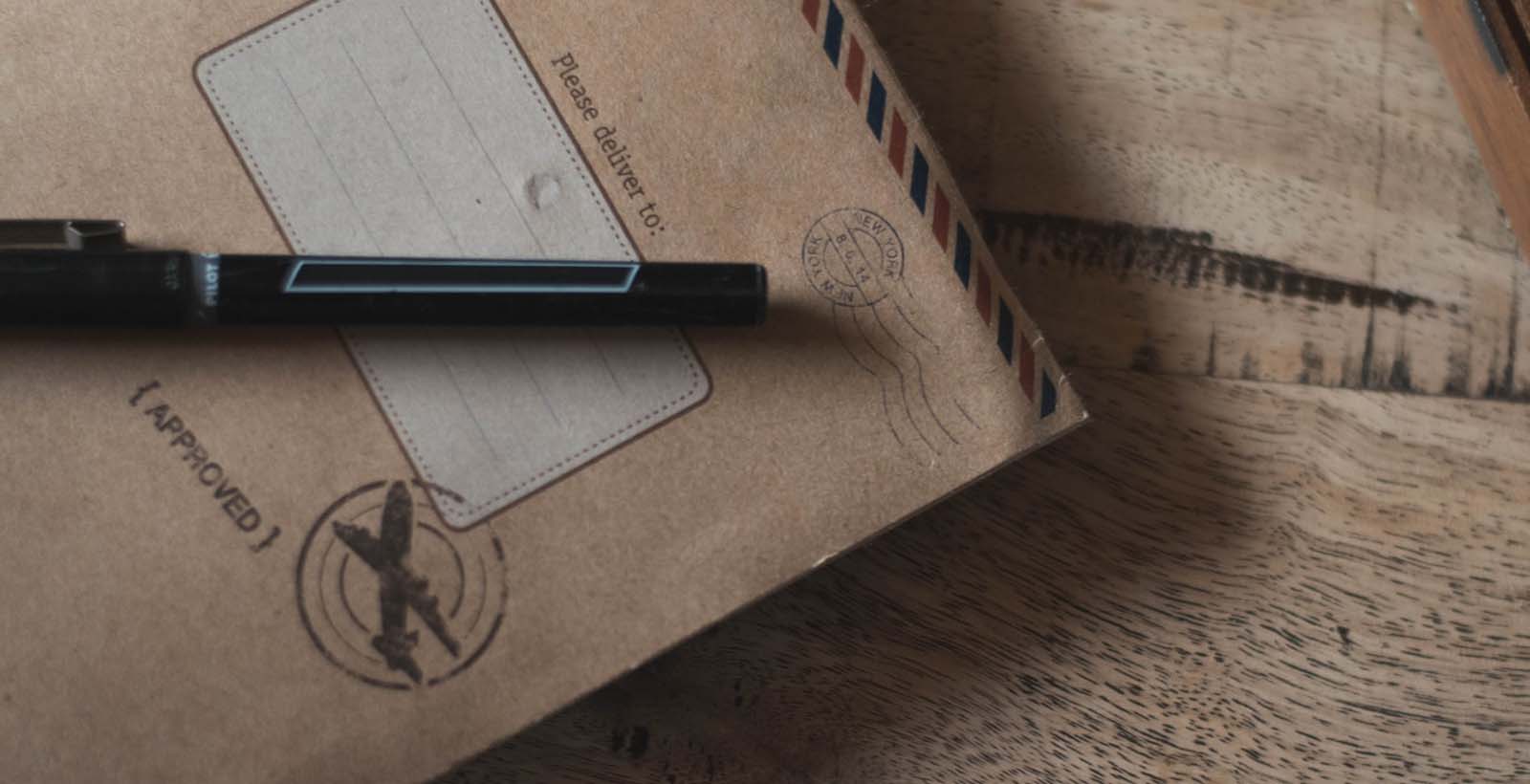Contents
Most creditors tend to communicate with their debtors by sending letters and whilst it can be stressful to deal with any letter involving money that you owe, debt collection letters can be particularly alarming. It’s understandable that such letters can be a cause for concern for debtors, but they needn’t be a source of panic as they are just another part of the debt collection process.
In this article we’ve summarised some of the key points to bear in mind if you receive a debt collection letter, so read on to learn more.
What does a debt collection letter look like?

Creditors commonly face complaints from debtors that they had not been notified about the attempts that have been made to collect their debts. This is despite the fact that there is a whole range of letters (and indeed other forms of communication) that creditors commonly send out – particularly when they are considering taking further action to recover money.
If you are up to date with the agreed repayments towards a debt, for instance, you will be likely to receive regular statements that show your outstanding balance along with a record of the repayments that you have made. In the case of many debts, creditors are legally obliged to provide statements on an annual basis at the very least.
In the event that you miss a payment, creditors will often send reminder letters or emails requesting that you bring your account up to date. You may also receive phone calls or texts, particularly if a longer period has elapsed since a payment has been missed.
If you have not made the payments requested, or if you have not engaged with your creditors after they have made several attempts to contact you, they may escalate your account to their collection department. Communications sent at this stage may be worded more severely and could even threaten legal action. Following this stage, you could receive a default notice or further letters which threaten action including sending debt collectors to your home.
Finally, your creditors may decide to take you to court and if so they should issue you with a ‘letter of claim’ detailing the action they are taking against you and next steps. If this happens, seeking qualified financial and legal advice could help you to safeguard your interests and reach a resolution with your creditors.
How to deal with a debt collection letter?

Sometimes, debtors feel that the easiest way to deal with debt collection letters and other similar communications is to simply ignore them in the hope that they will eventually go away. This is not the case and failing to take responsibility for your debts can lead to even greater consequences in the future.
Below we’ve listed some more appropriate ways to approach debt collection letters, which ultimately add up to a more constructive way of engaging with creditors.
Read all letters carefully and don’t throw them away
Any correspondence that you receive from your creditors is likely to contain important information, particularly if you have missed repayments or if your account has progressed towards debt collection or even default. Many letters will set out the steps that you should take to rectify the situation and may include a deadline by which you must respond. Ensuring that you read all letters carefully and respond to them in a timely manner could help to prevent your debt from being escalated to collection or even court action, and creditors often take a much more favourable view of debtors who choose to engage with them versus those who resist attempted contact.
Even if a letter or other form of communication does not require you to take any particular action, you may find it worthwhile to maintain a record of all correspondence received from your creditors. This could take the form of a file which combines all communications that you have received, and keeping such a record will make it easier for you to reference back to events in future – especially if you are ever involved in legal action.
Don’t pay immediately without making sure
Debt collection letters can be written in threatening language, and it’s easy to understand why debtors often feel pressured to take immediate action to deal with their debts on receipt of such communications. Even though debt collection letters can be unnerving, jumping into action is not necessarily the best approach to take and could lead to you making uninformed decisions that impact on your financial status in other ways.
For many debtors, it can make sense to take stock of the situation before deciding how to proceed. Often, the best thing to do is to first ensure that you fully understand the information that you have been presented with, confirm that the debt involved is legitimate, and work out a realistic route forward.
Confirm that the debt is legitimate

Before taking any action, verifying that a debt is legitimate can help you to ensure that you only pay what you genuinely owe. Debtors are entitled to written validation of their debts and your creditors should respond to any request for documents such as your credit or loan agreement, or a statement that details all financial transactions on your account.
Even if you already know for certain that you owe the debt in question, seeking this information can still be a valuable exercise and will give you additional documentation to add to your file which could make it easier to manage your debts in future.
Requesting confirmation of a debt is an important step to take, as it allows you to check both that you genuinely owe what is requested of you and that the figure indicated is accurate. You can dispute any incorrect information at this stage – usually in writing – and a creditor or debt collection company cannot make repeated demands for payment until they have investigated, rectified or invalidated any disputes against a debt.
Seek Help
The debt collection process can be daunting and, understandably, many debtors feel overwhelmed when they receive contact from their creditors. Debt is a complex topic, and there’s no shame in seeking help to manage your debts, engage with your creditors and find realistic solutions to your problems.
A qualified financial adviser may be able to assist you with your creditors and existing debts and could help to alleviate some of the pressure that comes with receiving a debt collection letter.
Consider whether a payment plan could help
If you have already verified a debt and are confident that you owe what has been requested of you, the next step is to work out how best to proceed.
Although the most direct route to dealing with debt collection can be to pay the outstanding figure in full, doing so simply isn’t possible for many debtors and this is where other options come into play. In some cases, if you have a significant lump sum that can be put towards the debt, your creditors may be willing to accept even if the debt will not be repaid in full.
This is known as a full and final settlement offer, which could result in any remaining debt being written off. Whilst this can offer a viable solution to some debtors, keep in mind that as a part payment, a record of a full and final settlement will be kept on your credit file for 6 years which could affect your ability to access further credit.
You may also be able to reach an agreement with your creditors that involves paying back what you owe over a longer period of time as part of a repayment plan. This could entail making reduced monthly repayments towards your debts and could even result in the interest and fees that would usually be applied being frozen.
Whilst payment plans can provide a realistic route to the repayment of your debts, it’s important to consider your circumstances, ensure that you are agreeing to a plan that is genuinely affordable for you, and to seek help from a financial adviser if necessary.
Can I stop creditors from contacting me?

If you have missed agreed repayments towards your debts, it follows that your creditors will likely attempt to contact you. This can of course be incredibly stressful and some debtors struggle to cope with the mounting pressure that can be caused not only by their debts themselves but also the increased involvement of creditors.
In many cases, creditors are willing to work with their debtors and may accept a request for a period of ‘breathing space’ – meaning that they will refrain from contacting you for a set period (for example 30 days) whilst you work to put your financial affairs in order.
On a more formal level, certain debt solutions can act to prevent your creditors from contacting you and give you the time you need to repay what you owe without the added worry or receiving debt collection correspondence. Some of the debt solutions that could provide you with this relief include:
- Individual Voluntary Arrangements (IVAs);
- Debt Relief Orders (DROs);
- Bankruptcy; and
- Sequestration or the Minimal Asset Process (MAP) in Scotland.
To find out more about these solutions, click through to our more detailed guides that are linked above.
What are your rights?
Your creditors are entitled to contact you to enforce and collect unpaid debts except where you have a debt solution in place that prohibits them from doing so. If you have not entered into a debt solution, however, your creditors must still act within the law and knowing your rights can help you to recognise if things go wrong or if you have been treated unfairly.
Companies that offer many forms of consumer credit in the UK are regulated by the Financial Conduct Authority (FCA), whose guidelines require creditors to act in a reasonable, fair and transparent manner. If you are concerned about the treatment you have received from a creditor, you may be able to seek support from the FCA or the Financial Ombudsman, who will review your case free of charge.
Key Points
As we’ve set out above, whilst receiving a debt collection letter can be unnerving, it doesn’t need to be a source of panic and by stepping back and considering your options you can move forward without making any hasty decisions or paying any debts that you do not truly owe. The most important things to remember are that debts will not just disappear if you ignore them and that no matter what your circumstances are, there are options available to help you deal with financial problems.

